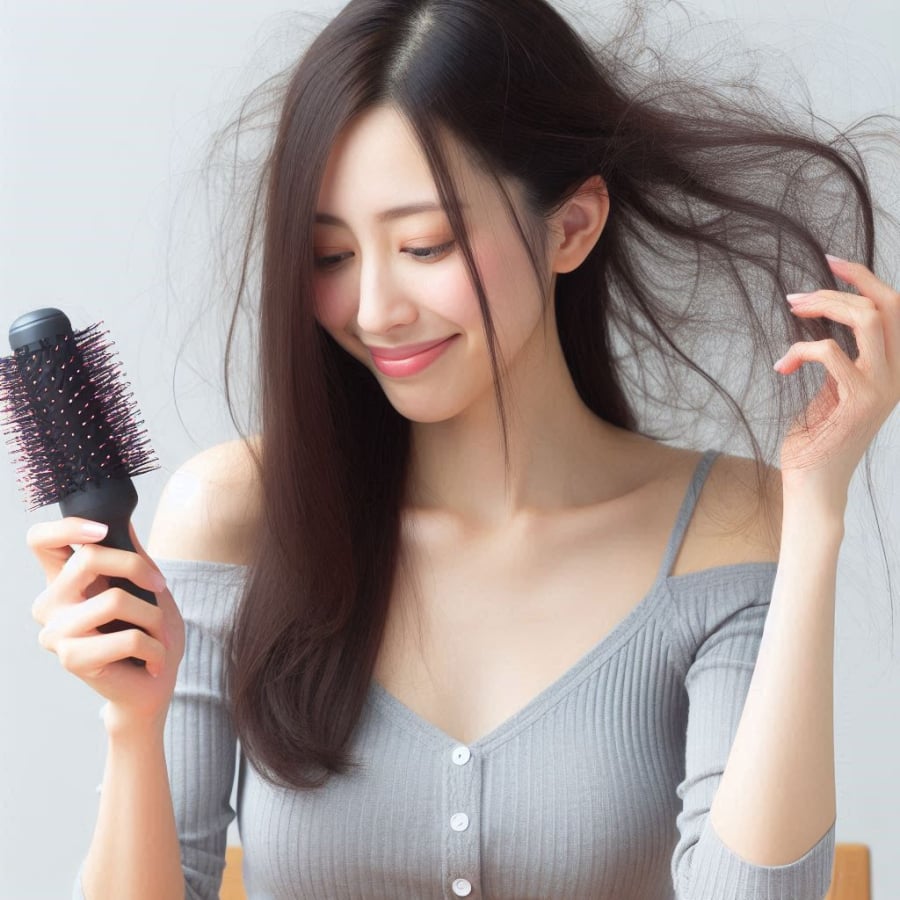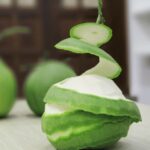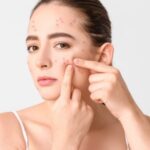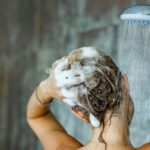A thick and lustrous head of hair is just as important as flawless skin when it comes to a woman’s confidence. Hair thickness, in particular, has become a common concern in modern society, with hair loss being a prevalent issue. Sparse hair can age a woman and greatly impact her overall appearance.
There are myriad reasons for hair breakage and loss, but most people only focus on the negative effects of cosmetic products such as hair dyes and perms, neglecting the importance of diet. For instance, a diet high in salt and oily foods can severely impact hair health. These flavorful and tantalizing dishes are often favored by many, who believe that the true essence of the cuisine lies in these strong flavors.
However, what most people don’t realize is that they are consuming excessive amounts of salt and oil. This not only causes the hair to retain too much water but also increases oil secretion in the scalp, hindering healthy hair growth.

A woman’s confidence shines through with beautiful skin and thick, lustrous hair.
How does a high salt intake negatively affect hair?
Excessive salt intake leads to a buildup of sodium around the hair follicles. This can obstruct blood flow to the follicles, preventing essential nutrients from reaching and nourishing the hair. As a result, hair becomes dull and is more prone to shedding.
In reality, many people exceed the recommended daily salt intake of 2.3g, especially men who tend to favor saltier foods. Unfortunately, this is not just due to heavy-handed seasoning, but also because many everyday foods such as canned goods, processed foods, sausages, and even some sweets contain significant amounts of salt.
Why can a diet high in oily foods be detrimental to hair health?
Studies have shown that consuming excessive oily foods can weaken the stem cells in hair follicles or the long-living cells in the follicles. During the normal growth phase of hair, these stem cells activate and regenerate, forming a healthy hair root and promoting hair growth. However, in an abnormal cycle, these stem cells cannot function effectively.
Scientists have concluded that a high-fat diet can contribute to this abnormal cycle by introducing inflammatory molecules into the body. These molecules cause oxidative stress and hinder follicle regeneration, leading to follicle shrinkage and increased hair loss.

Studies have shown that a diet high in oily foods can weaken stem cells in hair follicles.
What to eat for thicker and healthier hair?
In addition to external hair care products, paying attention to your diet is crucial. While some foods can be detrimental to hair health, many others can help you achieve thicker and shinier hair. Many celebrities in the entertainment industry also focus on these foods to maintain their gorgeous manes.
Black-colored foods
Black beans, black rice, black sesame seeds, and other naturally black-colored foods have long been known for their hair benefits. According to Western medical research, the unsaturated fatty acids and vitamin E found in black sesame seeds offer significant advantages for the keratin structure that forms hair and nails.
Anti-inflammatory foods to support scalp health
If you frequently consume fried chicken, hot pot, grilled fish, and other fatty and spicy dishes, pay attention to scalp inflammation. Most processed foods are acidic and, due to their high oil and salt content, can cause internal inflammation.
Natural scalp inflammation leads to a disrupted microflora environment, hindering hair health. Anti-inflammatory foods typically include minimally processed options such as nuts, whole grains, fresh fruits, and vegetables…
Omega-3 rich foods for shinier and healthier hair
When it comes to Omega-3, pet owners are likely familiar with its benefits. Supplementing Omega-3 for pets can enhance their fur’s beauty. The same principle applies to humans. Omega-3 rich foods include fish oil, purple potatoes, nuts, deep-sea fish, and flaxseed oil…
Vitamin B and D for longer hair growth
Both vitamins B and D are crucial for scalp and hair health. A deficiency in vitamin B2 and D can lead to overactive sebaceous glands, causing follicle blockage. Insufficient vitamin B6 can shorten hair growth time, increasing hair loss risk. Dairy products, whole grains, and dark-colored vegetables are rich sources of these essential vitamins.
The Secret to Naturally Beautiful Hair: 8 Super Veggies to Stop Hair Fall, Combat Oiliness, and Promote Healthy Hair Growth.
Hair loss and greasy hair are common concerns for many. Instead of reaching for expensive cosmetics, discover eight natural ‘hair tonic’ vegetables that are easily sourced from your local market. These vegetables not only help reduce hair loss and grease but also stimulate hair growth, resulting in a thick, shiny, and healthy mane.



































